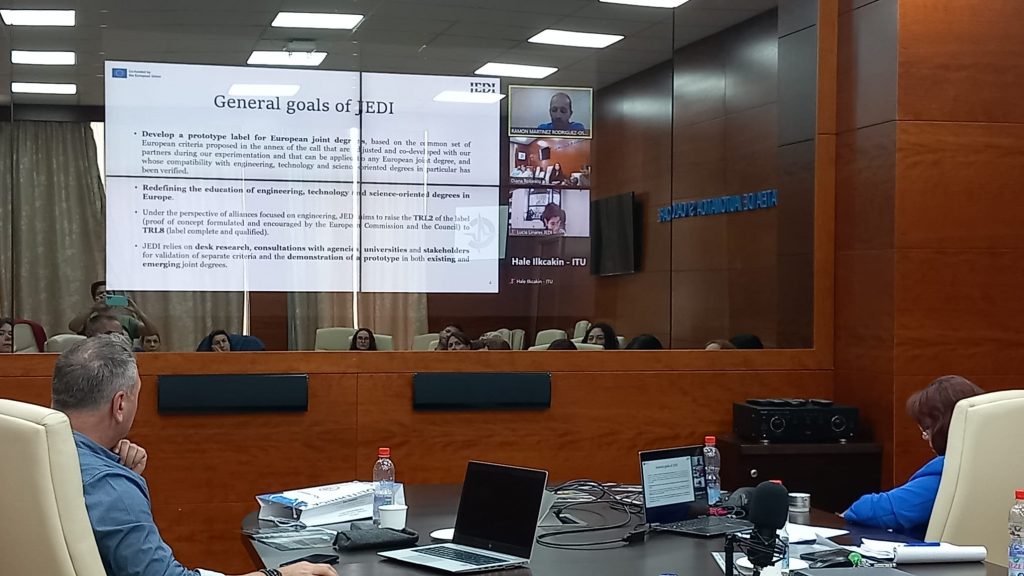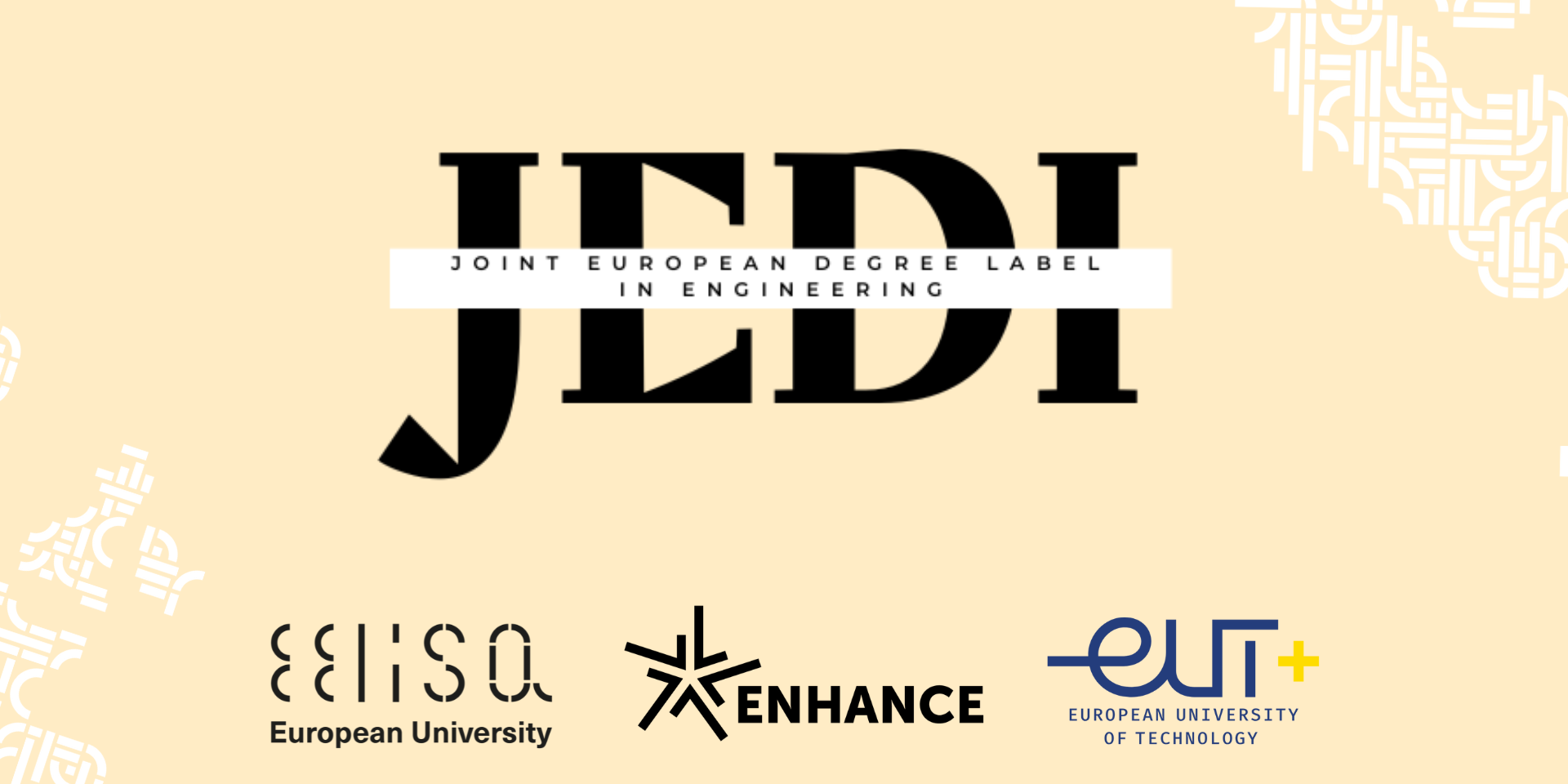The Joint European Degree Label in engineering (JEDI) is one of the projects from the Erasmus+ Programme, under the ERASMUS-EDU-2022-POL-EXP call for policy experimentation in higher education. It relies on the joint collaboration of 16 higher education institutions (HEI), spread out in 11 countries, to explore, during one-year, common criterion for a potential European label for European joint programs. Under the perspective of engineering, technology and science-oriented education, the goal is to issue a label as a complementary certification to the qualifications obtained by students and take a step forward to the creation of a framework for engineering education in Europe.
“We expect to synthesize an updated review of national accreditation approaches and educational requirements in engineering diplomas and to co-create a European criteria, to be awarded at national, regional or HEI level, in accordance with the European Qualifications Frameworks (EQF)”, as underlines professor Ramón Martínez RodríguezOsorio, the project coordinator from Universidad Politécnica de Madrid. Closely collaborating with diverse stakeholders, the project will analyze how the JEDI label impact institutional aspects, enriches innovative methodologies, and empowers European added values.
The JEDI quality framework stands directly under three European Universities’ flag, EELISA, ENHANCE and EUt+. By empowering the network and the project outcomes with this enriching cooperation, the three alliances are more aware of the opportunities brought by European Alliances with joint programs and other innovative recognition systems for transnational learning experiences.
Awarding labelled joint degrees, the project increases the visibility and attractiveness of European Universities throughout Europe and beyond.By providing innovative learning approaches and improving the quality of the curriculum, JEDI establishes sustainable strategic relationships and transnational cooperation as it builds networks of excellence to strengthen (strategic) international education and research collaboration.
Click here to download the press release.


